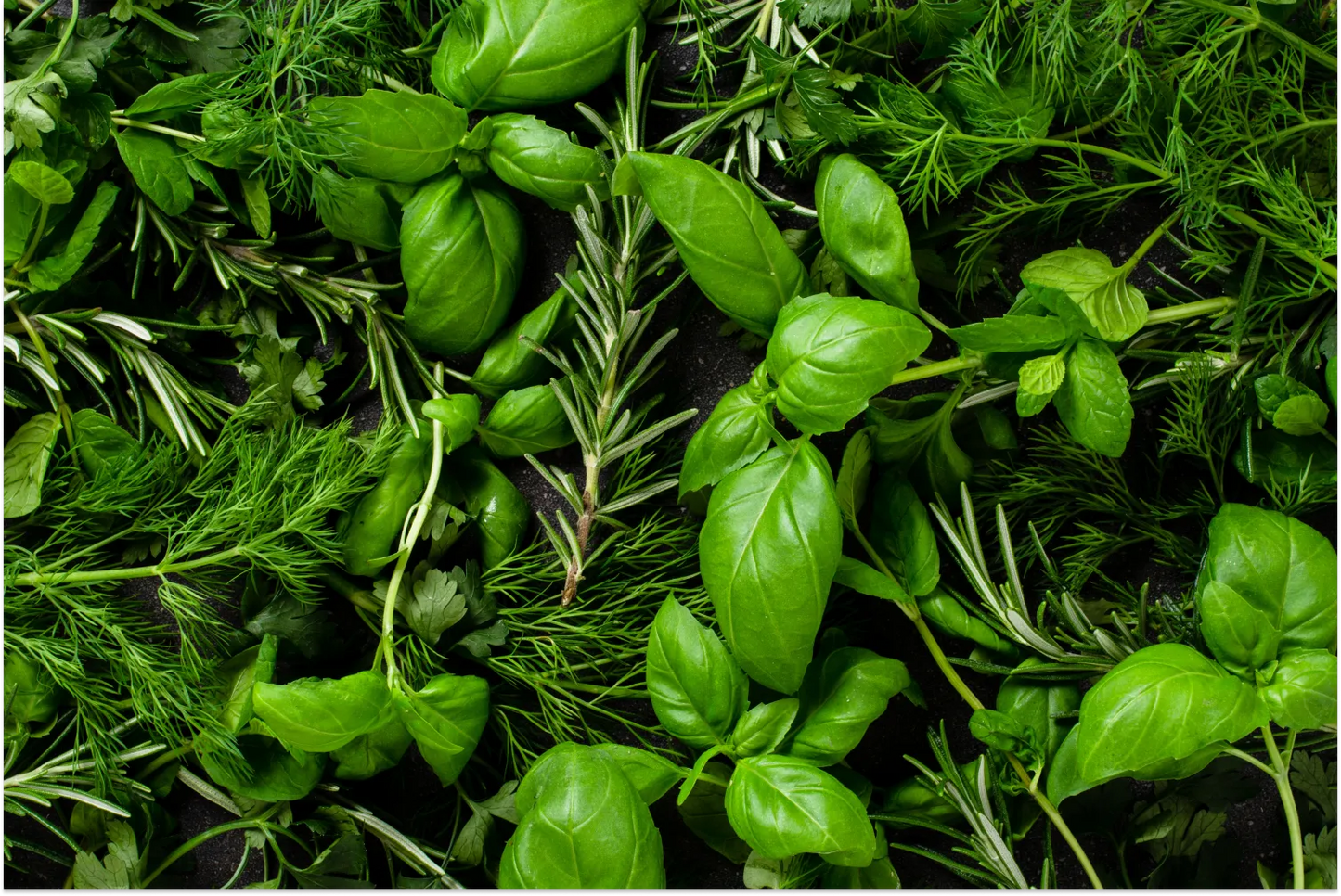
How To Lose Weight Fast Without Exercising: 10 Ways
The global rise in obesity has led to an increased and passionate interest in how to lose weight. As science and technology continue to evolve, we’re learning new information about how to achieve this goal.
For instance, you probably think that it’s impossible to lose weight without exercise. Surely, the key to shedding those extra pounds is high-intensity workouts starting before dawn every morning, right?
While hitting the gym can definitely help you achieve your weight loss goals, research shows that it’s not the only way to lower that number on your scale. In fact, it’s possible to drop some body fat without even doing a single pushup, situp, burpee, or bench press.
Read on to discover ten simple ways to achieve a healthy weight without requiring a gym membership or workout routine.
How Does Weight Loss Work?
The concept of weight loss is a fairly simple equation that can be easily summed up as “calories in versus calories out.”
You see, calories are units of energy that are provided by the foods and beverages that you consume. More calories in than out is a recipe for weight gain, but a diet featuring a low-calorie intake would promote weight loss.
Here are a few more details worth knowing about:
Basal Metabolic Rate (BMR)
Naturally, the body requires more energy when it’s physically active. That’s why the gym can be so beneficial for fat loss. However, your body is constantly using energy for basic functions, including breathing, maintaining your body temperature, and producing cells.
Unfortunately, every person’s BMR (the amount of energy your body uses to perform these basic functions) is different and can be heavily influenced by factors including age, genetics, weight, gender, and muscle mass. Depending on your specific combination of these factors, it could be more difficult to lose weight.
Total Daily Energy Expenditure (TDEE)
TDEE represents the total number of calories that you burn within a single day. It takes into account your BMR, the calories you’ve burned via physical activity, and the calories required for digestion. As mentioned above, one of the keys to weight loss is to have a higher TDEE than calorie intake.
Calorie Deficit
Just as the name suggests, a calorie deficit occurs when your TDEE is lower than the total amount of calories in your diet plan. Excess calories aren’t wasted by the body. Instead, they’re stored as fat.
Each pound of stored fat in your body is the equivalent of 3,500 calories. So that means that it takes a total calorie deficit of at least 3,500 calories to burn off a single pound of fat. Since you can’t do this safely in a single day, it will take a consistent and holistic effort to lower your body weight.
Is It Possible To Lose Weight Without Exercising?
It might sound too good to be true, but it’s absolutely possible to lose weight without exercising. There are a few health benefits of getting exercise that make it worth the effort. However, it’s not a prerequisite for losing weight and is merely a piece of the weight loss equation.
Here are a few other factors that can affect your weight:
- Dietary impact: Believe it or not, studies suggest that diet plays a more significant role in weight loss than exercise. After all, it’s much easier to eliminate 500 calories from your food intake than it is to burn 500 calories through rigorous exercise.
- Resting energy expenditure: The majority of our daily calorie burn (60-70%) comes from simply existing (remember BMR?). This is why managing your caloric intake has a direct impact on weight, irrespective of exercise.
- Lifestyle choices: Beyond diet and exercise, choices like getting enough sleep, managing stress, and staying hydrated can indirectly influence weight by regulating appetite, cravings, and metabolism.
10 Ways To Lose Weight Without Exercising
If you’re still skeptical about how to lose weight without exercising, then the following section will surely convince you. Ask any dietitian or nutritionist, and they’ll tell you that making a few of the following changes is all that it takes to melt away your excess belly fat.
1. Make Dietary Changes
As you probably would have guessed, the first thing that you’ll need to do is make some changes to your diet. The concept of healthy eating means focusing on consuming whole foods that are packed with essential vitamins, minerals, and antioxidants.
That means balanced meals featuring vibrant foods, nutrient-dense veggies, heart-healthy fats, whole grains, and lean proteins. Including these rich foods in your diet can keep your metabolism regulated and help you burn more calories at rest.
Not only that, but they’re much better at providing satiety and curbing the temptation of untimely snacking that can derail your weight loss efforts. Junk food and other snacks are often loaded with refined carbohydrates, hidden sugars, unhealthy fats, and sodium. Not only do these foods provide virtually no nutritional value, but they’re empty calories that can lead to weight gain.
2. Practice Portion Control
The essence of balanced eating lies not just in what we consume but also in the total amount that we eat. Even replacing all of your junk food with the nutrient-dense foods mentioned above can be detrimental without portion control. Remember that the idea is to ingest fewer calories than you burn.
One of the easiest ways to get started on portion control is to use smaller plates and bowls. It might not seem like a big deal, but this simple trick can be a game changer.
The servings will appear larger than they actually are and trick your mind into thinking you’re eating more than you are. In a world where excess is often celebrated, paying close attention to your portion can be revolutionary on the journey to weight loss and wellness.
3. Drink Plenty of Water
You already know that water is essential to our survival. Far more than a mere thirst quencher, water plays a pivotal role in regulating body temperature, flushing out toxins, digestion, and metabolism. What you might not know is that water can be an elite ally on your weight loss journey.
Drinking water before meals can serve as a natural appetite suppressant, filling your stomach and curbing the tendency to overeat. Our bodies aren’t the best communicators of their needs, and sometimes we can mistake hunger pangs for thirst. Keeping a water bottle handy and staying properly hydrated can help eliminate unnecessary snacking and keep you on track to a calorie deficit.
Of course, drinking a glass of water can be a bit boring and plain, which can make it hard to make the switch from sugary beverages, such as soda and fruit juice. Infusing water with a few slices of fruit or adding some herbs can make water more enjoyable, helping you stay hydrated and avoid excess snacking.
4. Try Intermittent Fasting
Intermittent fasting (IF) is a wildly popular weight loss program. The concept is simple enough: alternating between designated eating and fasting periods encourages your body to use stored fat as energy. Not only can that help you shed weight, but IF can also support your metabolism, encourage cellular repair, and support balanced blood sugar levels.
5. Prioritize Protein
Proteins are the building blocks of life and essential macronutrients needed for cellular structure, function, and regulation. While you’ve surely heard gym enthusiasts talk about their latest favorite protein supplement, it’s not just for supporting exercise.
Sure, it’s a crucial part of muscle recovery and growth, but protein also induces feelings of fullness that can help curb cravings. Not just that, but it can help maintain your lean muscle mass as you’re losing weight.
The key is to opt for high-protein sources that are light on calories and fat. Lean meats like chicken breast and ground turkey are better options than steaks and hamburgers. Fatty fish, legumes, and lentils are also excellent sources of lean protein.
Of course, you could always use our Collagen Peptides to seamlessly increase your protein intake while supporting your skin and joint health.
6. Eat Mindfully
In today’s fast-paced world, meals often become rushed affairs, gulped down while multitasking or watching TV. However, embracing the concept of mindful eating can help you to ground yourself in your meal and make each bite a conscious choice instead of a reflex.
Mindful eating helps you to slow down, chew thoroughly, and truly savor your food. The textures, flavors, and aromas can take your experience to another level. Not just that, but your brain will have the time to register that your stomach is getting full and help prevent overeating.
7. Reduce Calorie Dense Foods
The caloric content of foods can be deceptive. A small packet of chips, a bowl of breakfast cereal, or a fizzy drink might seem harmless, but they pack in a hefty calorie count while featuring little to no nutritional value. These calorie-dense culprits are everywhere, often masked under labels of “'comfort food,” and can quickly derail our weight loss aspirations.
By gravitating towards nutrient-dense foods — those that offer a plethora of vitamins, minerals, and other beneficial compounds — you get more nutritional bang for your buck. Such choices satiate hunger effectively, providing the body with the fuel it needs without an overload of unnecessary calories.
8. Make Healthy Swaps
Healthy living doesn’t mean saying goodbye to all things delicious. It's about redefining your palate and finding healthier alternatives that are equally, if not more, gratifying.
For example, imagine the benefits of sipping on Dr. Kellyann’s warm, savory bone broth instead of carbonated drinks laden with sugars and additives. Alternatively, consider a creamy collagen smoothie that's not only delectable but also a boon for skin health, as opposed to high-calorie milkshakes.
These swaps are just a few examples, but they signify that health and pleasure can co-exist, crafting a balanced approach toward your dietary choices.
9. Get Enough Sleep
Often underestimated, sleep plays a pivotal role in our overall well-being, acting as the body's natural reset button. Each night, as we delve into slumber, our bodies get busy repairing, rejuvenating, and rebalancing.
One of the crucial areas affected by our sleep patterns is our appetite. Inadequate rest and sleep deprivation can skew the balance of hunger hormones like ghrelin and leptin, leading to increased cravings, particularly for calorie-dense foods, sugary drinks, and excess carbs.
Achieving a steady seven to eight hours of deep sleep isn’t merely a luxury; it’s essential for weight loss. As you tuck in early each night, you’re not only giving yourself dreams but also the promise of a regulated appetite and reduced chances of overindulgence the next day.
10. Manage Stress Levels
In the modern age, stress can often feel like an inescapable shadow, trailing us in various facets of life and playing tug of war with our mental health. However, it's essential to realize the negative impacts of unchecked stress.
Elevated stress levels trigger the release of cortisol, a hormone that, in abundance, can promote fat storage, especially around the abdominal area. Fortunately, combatting stress doesn't require grand gestures. It's about weaving moments of calm into our daily lives.
Engage in relaxation techniques like deep breathing or meditation, lose yourself in a hobby that makes your heart sing, or simply carve out moments of quiet reflection. By consciously managing stress, you do more than just uplift your spirit; you shield your body from the undesired weight of chronic pressure.
The Takeaway
The first step on your weight loss journey is the hardest. It can be overwhelming trying to make all of these changes at once. Just keep in mind that the journey to a slimmer figure is a marathon and not a sprint.
Start small, get used to the new change, and move on to the next one. Eventually, these small changes can snowball into an avalanche, and you’ll be losing weight so fast that you’ll need a new wardrobe.
By making these lifestyle changes, you're taking a holistic approach to weight management and wellness. The journey will require you to stay on the path during every bite you take, every sip you make, and every night that you sleep.
Remember that Dr. Kellyann is always here for you should you want any extra help or guidance. Even something as simple as our Daily Divine Gummies can help support your nutrition as you iron out the details of your new diet. Together, we can strive to help you achieve your healthcare goals once and for all.
Sources:
Worldwide Obesity on the Rise | UCLA Health
Role of Physical Activity for Weight Loss and Weight Maintenance | PMC
What Are Calories? | Live Science
TDEE Calculator: Calculate Total Daily Energy Expenditure | Forbes Health
Diet Versus Exercise in Weight Loss and Maintenance: Focus on Tryptophan | PMC
How Many Calories Do You Burn In A Day? | Cleveland Clinic
Healthy Eating for a Healthy Weight | Healthy Weight, Nutrition, and Physical Activity | CDC
Yes, Drinking More Water May Help You Lose Weight | Johns Hopkins
A Unified Vision of the Building Blocks of Life | PMC
Mindful Eating | The Nutrition Source | Harvard T.H. Chan School of Public Health
How Sleep Works - Why Is Sleep Important? | NIH
Stress, Cortisol and Abdominal Fat | American Institute of Stress







